Evaluierung von Subventionsprogrammen
Diese Forschungsgruppe untersucht die Effekte von Produktions- und Wissensnetzwerken auf die Produktivität von Unternehmen und Regionen. Darüber hinaus werden Wirkungen staatlicher Förderprogramme für Forschung und Entwicklung sowie regionalpolitischer Programme auf die Leistungsfähigkeit von Unternehmen und Regionen evaluiert.
Zentrum für evidenzbasierte Politikberatung (IWH-CEP)
Forschungscluster
Wirtschaftliche Dynamik und StabilitätIhr Kontakt

- Abteilung Zentrum für evidenzbasierte Politikberatung
PROJEKTE
09.2019 ‐ 09.2022
Etablierung einer evidenzbasierten Evaluationskultur für industriepolitische Fördermaßnahmen in Deutschland (EVA-KULT)
Europäischer Fonds für regionale Entwicklung (EFRE)
Das Vorhaben dient dem Ausbau des Zentrums für evidenzbasierte Politikberatung am Leibniz-Institut für Wirtschaftsforschung Halle (IWH-CEP).
01.2018 ‐ 12.2020
Vernetzt wachsen - Innovatives Sachsen-Anhalt durch digitale Geschäftsmodelle (Kompetenzzentrum 4.0)
Bundesministerium für Wirtschaft und Energie (BMWi)
01.2017 ‐ 12.2018
Politische Partizipation in Ostdeutschland
Bundesministerium für Wirtschaft und Energie (BMWi)
12.2015 ‐ 11.2018
Sozioökonomische Effekte der Erforschung innovativer Ansätze für die POC-Diagnostik
Bundesministerium für Bildung und Forschung (BMBF)
Teilvorhaben im Verbundprojekt “POC-Sensorplattform für chronisch-entzündliche Atemwegserkrankungen (EXASENS)”. Neun Leibniz-Institute arbeiten gemeinsam im Pilotprojekt EXASENS an der Erforschung einer Point-of-Care-Technologie zur Vorhersage und Diagnose von chronisch-entzündlichen Atemwegserkrankungen. Der Verbund wird vom Bundesministerium für Bildung und Forschung (BMBF) mit 6,25 Millionen Euro gefördert und liefert einen Beitrag zum Ausbau und zur Stärkung des Themenfeldes Gesundheitstechnologien.
Vgl. Pressemitteilung des Leibniz-Institut für Photonische Technologien (IPHT), Jena.
02.2017 ‐ 02.2018
Bedeutung außeruniversitärer Forschungseinrichtungen für die Entwicklung von Betrieben und Regionen
Bundesministerium für Bildung und Forschung (BMBF)
01.2015 ‐ 12.2016
Evaluierung der GRW-Förderung in Sachsen-Anhalt
Investitionsbank Sachsen-Anhalt
Referierte Publikationen
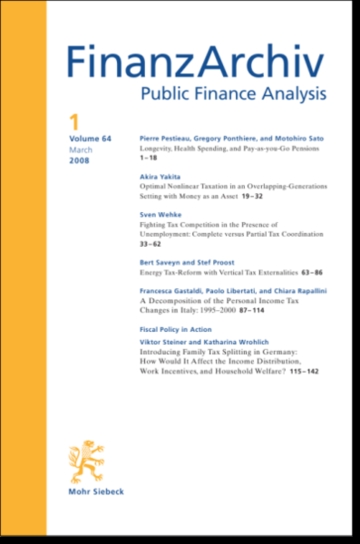
The Efficiency of Local Public-service Production: The Effect of Political Institutions
in: FinanzArchiv, Nr. 2, 2018
Abstract
Reforms replacing municipal cooperations by centralized municipalities often aim at increasing municipal efficiency. Empirical evidence supporting this aim, however, is ambiguous. Our paper analyzes the effect of institutions on municipal efficiency. In particular, we distinguish two archetypal institutional settings, a centralized and a confederal one, and argue that bureaucrats in a centralized setting are able to increase the fiscal residual. Our empirical test case is the German federal state of Saxony-Anhalt. We test the effect of the institutional setup using the bootstrap approach suggested by Simar and Wilson (2007), concluding that a decentralized institutional setting improves the efficiency of municipal production.
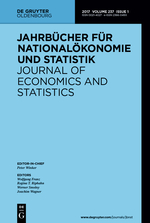
Public Investment Subsidies and Firm Performance – Evidence from Germany
in: Jahrbücher für Nationalökonomie und Statistik, Nr. 2, 2018
Abstract
This paper assesses firm-level effects of the single largest investment subsidy programme in Germany. The analysis considers grants allocated to firms in East German regions over the period 2007 to 2013 under the regional policy scheme Joint Task ‘Improving Regional Economic Structures’ (GRW). We apply a coarsened exact matching (CEM) in combination with a fixed effects difference-in-differences (FEDiD) estimator to identify the effects of programme participation on the treated firms. For the assessment, we use administrative data from the Federal Statistical Office and the Offices of the Länder to demonstrate that this administrative database offers a huge potential for evidence-based policy advice. The results suggest that investment subsidies have a positive impact on different dimensions of firm development, but do not affect overall firm competitiveness. We find positive short- and medium-run effects on firm employment. The effects on firm turnover remain significant and positive only in the medium-run. Gross fixed capital formation responses positively to GRW funding only during the mean implementation period of the projects but becomes insignificant afterwards. Finally, the effect of GRW-funding on labour productivity remains insignificant throughout the whole period of analysis.
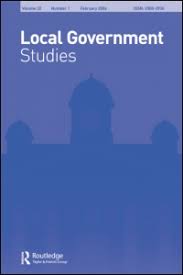
Does Intermunicipal Cooperation Increase Efficiency? A Conditional Metafrontier Approach for the Hessian Wastewater Sector
in: Local Government Studies, Nr. 1, 2018
Abstract
This paper analyses the relationship between intermunicipal cooperation and efficiency of public service provision. Organisational arrangements of public service production, including self-provision, joint provision or contracting, affect incentives and internal transaction costs. Hence, cooperation gains from scale effects need to be balanced against technical inefficiencies. We analyse relative efficiency of wastewater disposal for German municipalities. We employ a conditional analysis in conjunction with a metafrontier approach to calculate relative efficiency measures and technology gap ratios controlling for organisational arrangements and further environmental variables. Jointly providing municipalities and contractor municipalities exhibit lower technical efficiency than self-providing and contracting municipalities. As confirmed by previous research, scale effects from cooperation and contracting apply to small municipalities primarily.
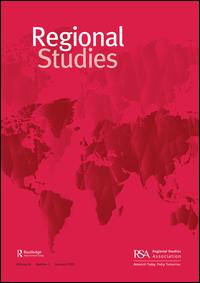
R&D Collaborations and the Role of Proximity
in: Regional Studies, Nr. 12, 2017
Abstract
R&D collaborations and the role of proximity. Regional Studies. This paper explores the impact of proximity measures on knowledge exchange measured by granted research and development (R&D) collaboration projects in German NUTS-3 regions. The results are obtained from a spatial interaction model including eigenvector spatial filters. Not only geographical but also other forms of proximity (technological, organizational and institutional) have a significant influence on the emergence of collaborations. Furthermore, the results suggest interdependences between proximity measures. Nevertheless, the analysis does not show that other forms of proximity may compensate for missing geographical proximity. The results indicate that (subsidized) collaborative innovation activities tend to cluster.
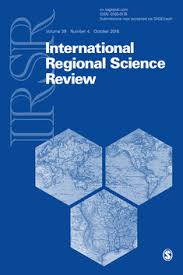
Benchmark Value-added Chains and Regional Clusters in R&D-intensive Industries
in: International Regional Science Review, Nr. 5, 2017
Abstract
Although the phase of euphoria seems to be over, policy makers and regional agencies have maintained their interest in cluster policy. Modern cluster theory provides reasons for positive external effects that may accrue from interaction in a group of proximate enterprises operating in common and related fields. Although there has been some progress in locating clusters, in most cases only limited knowledge on the geographical extent of regional clusters has been established. In the present article, we present a hybrid approach to cluster identification. Dominant buyer–supplier relationships are derived by qualitative input–output analysis from national input–output tables, and potential regional clusters are identified by spatial scanning. This procedure is employed to identify clusters of German research and development-intensive industries. A sensitivity analysis reveals good robustness properties of the hybrid approach with respect to variations in the quantitative cluster composition.
Arbeitspapiere
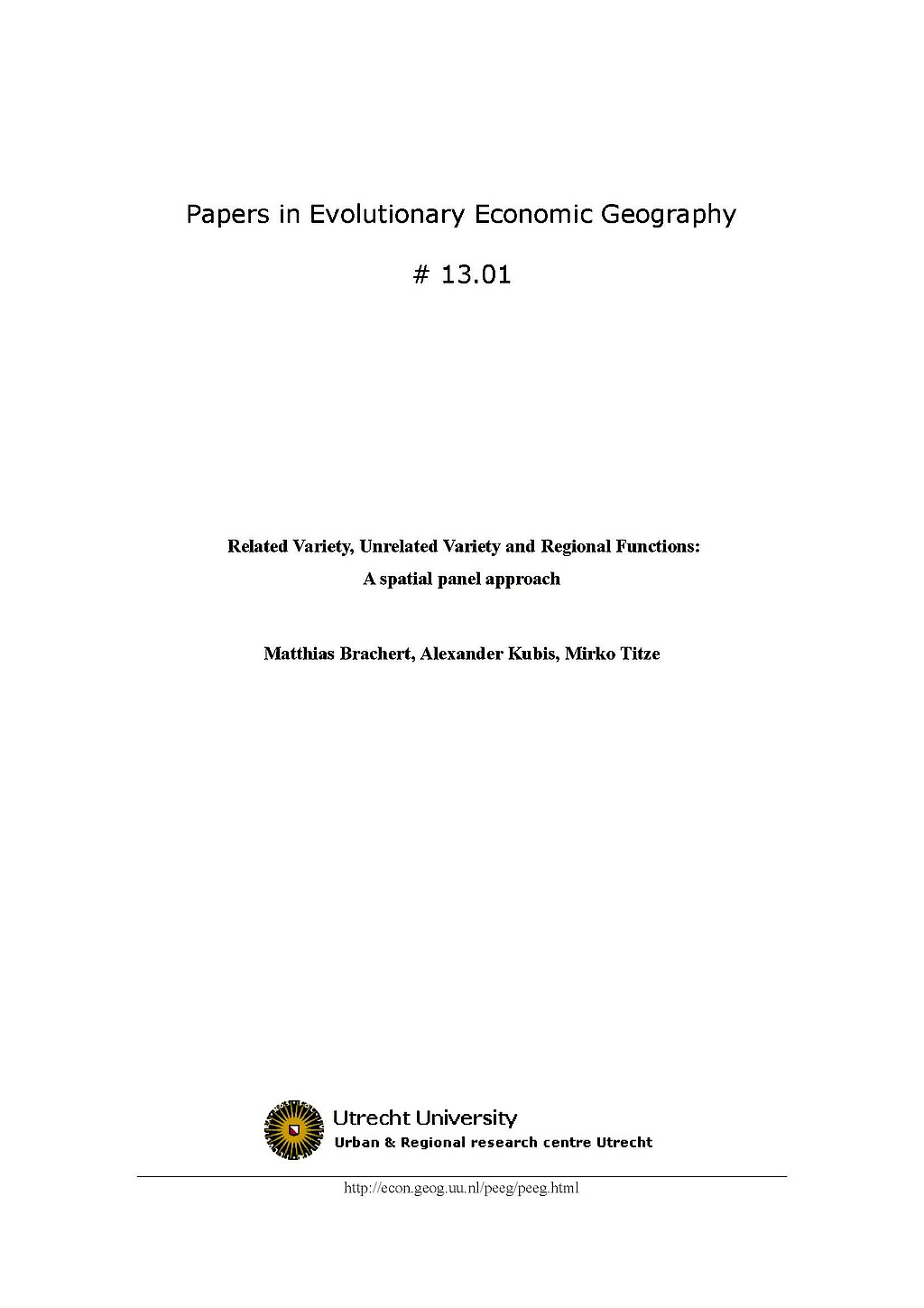
Related Variety, Unrelated Variety and Regional Functions: A spatial panel approach
in: Papers in Evolutionary Economic Geography, 2013
Abstract
The paper presents estimates for the impact of related variety, unrelated variety and the functions a region performs in the production process on regional employment growth in Germany. We argue that regions benefit from the existence of related activities that facilitate economic development. Thereby the sole reliance of the related and unrelated variety concept on standard industrial classifications (SIC) remains debatable. We offer estimations for establishing that conceptual progress can be made when the focus of analysis goes beyond solely considering industries. We develop an industry-function based approach of related and unrelated variety and test our hypothesis by the help of spatial panel approach. Our findings suggest that related variety as same as unrelated variety facilitate regional employment growth in Germany. However, the drivers behind these effects do differ. While the positive effect of related variety is driven by high degrees of relatedness in the regional “R&D” and “White-Collar”-functions, the effects of unrelated variety are spurred by “Blue Collar”-functions in this period.













